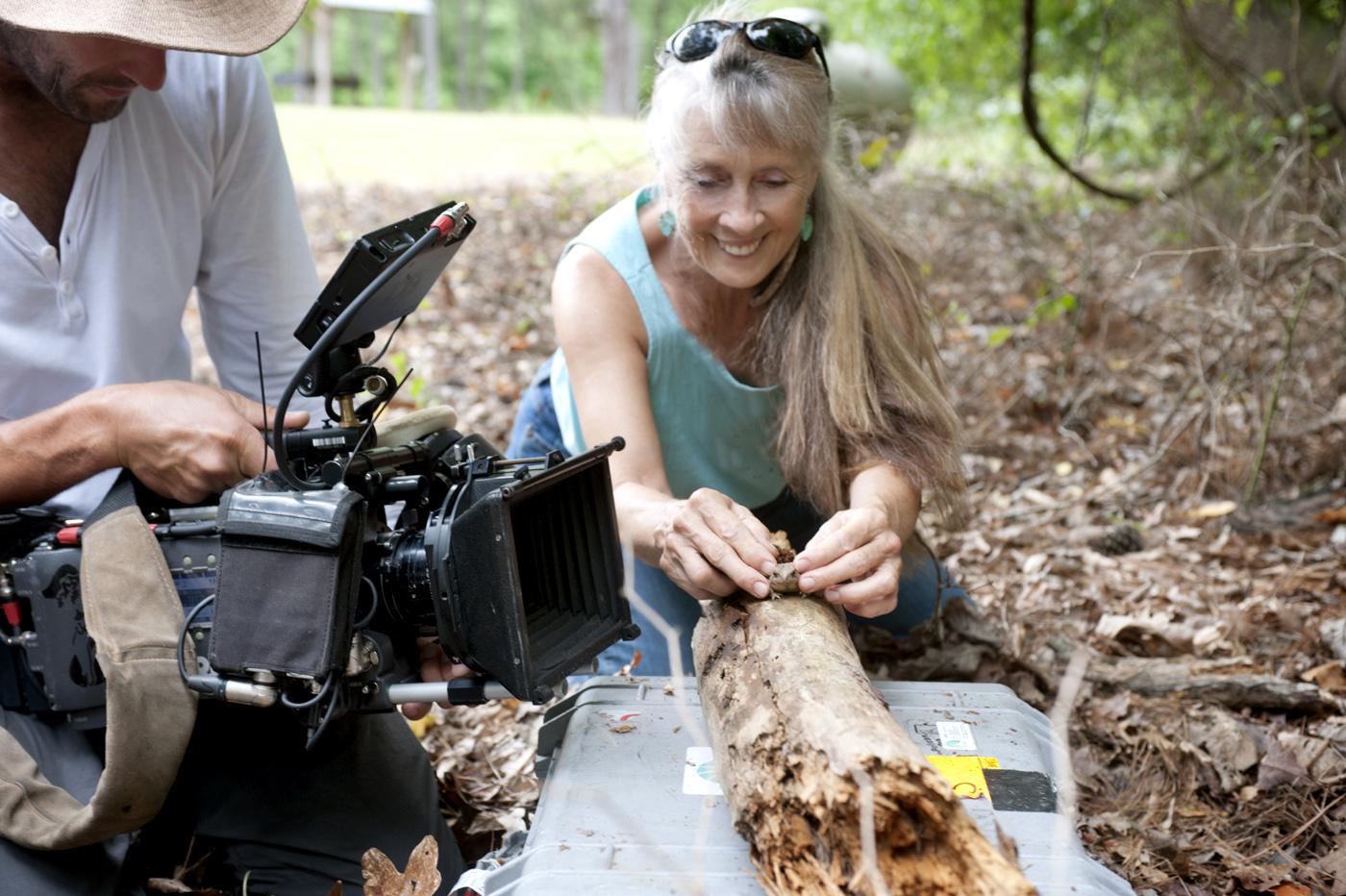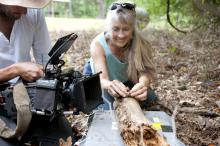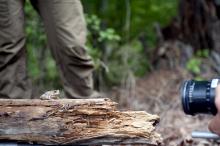Information Possibly Outdated
The information presented on this page was originally released on May 17, 2012. It may not be outdated, but please search our site for more current information. If you plan to quote or reference this information in a publication, please check with the Extension specialist or author before proceeding.
BBC team films catfish, toads in a visit to MSU
MISSISSIPPI STATE – Catfish and toads drew two British Broadcasting Corporation film crews and host to spend three days with Mississippi State University experts.
The crew was shooting an upcoming BBC documentary called Wonders of Life with host Brian Cox. It will follow Cox’s successful Wonders of the Solar System and Wonders of the Universe, viewed by millions of people in the United Kingdom and around the world last year.
Don Jackson, Sharp Professor of Fisheries in the Forest and Wildlife Research Center, took the crews on the Big Black River near Durant for three days of catfish fishing. Jeanne Jones, a professor of wildlife ecology and management in the FWRC, spent two days with the crews showing them Mississippi Fowler and American toads in MSU’s Starr Memorial Forest and the Noxubee National Wildlife Refuge.
“The BBC team was interested in the diversity of life that exists in our Southeastern wetlands and streams,” Jackson said. “They were specifically interested in the way animals live in environments that are alien to human beings, like turbid streams, backwater areas and wetlands.”
Jackson got special permits to use his scientific sampling nets to catch large catfish for the crews to film. He alternated fishing with the two BBC crews April 30 through May 2.
“I had worked that river a lot and knew where the catfish were and how to catch them. We loaded up the nets, and I showed them a good time,” Jackson said. “We caught huge, flathead catfish up to 80 pounds, and a lot that were 40, 50 and 60 pounds. They didn’t realize things like that existed in the world.”
Jackson said the crews and host wanted to look at the fish and talk about the way they live and how they master their environment.
“Even though these catfish have eyes, they don’t really use them in the dark river waters,” Jackson said. “They use chemical sensation instead. Their whole body is like a tongue. They taste the water for chemical changes, and that’s how they find their food and get to know the world around them.”
Jackson spoke as an expert on the subject of catfish and shared his thoughts on the river ecology and the lives of catfish.
Jones worked May 1 and 2 with the crews as they filmed toads, examining their ability to home in on prey. Before they arrived, Jones, post-doctoral student Nicole Hodges and MSU-Meridian biology professor Jarrod Fogarty caught about a dozen toads to “audition” for the show. They also used some toads John Hardy from the Mississippi National Heritage Program brought from his collection in Jackson.
“Toads find their prey based on the prey’s size and movement,” Jones said.
Leili Farzaneh, a researcher for Wonders of Life, said the episode will explore how life is able to take in information from the outside world through the senses.
“We would like to feature toads in our program [and] to talk about their remarkable visual processing,” Farzaneh said. “Toads have a specialized feature-detection system in their retina that allows them to spot moving prey-like objects with incredible efficiency. But it’s so specialized that it leaves them almost blind to stationary objects or those that do not fit their ‘prey model.’”
Before the crews arrived, Jones and the others fed the captive toads a variety of insects to see which toads were the most willing to eat on demand. Mealworms and earthworms were popular snacks.
“We kept the ones that were the biggest pigs,” Jones said. “The fattest, biggest female we named Penelope, and she would eat everything you put in front of her.”
When it came time for filming, the crew asked that the toads be filmed sitting on a log and eating. Jones said that is a naturally dangerous place for toads, as it exposes them to predators.
“We felt it might not work, but it did,” Jones said. “We put Penelope and one of the other biggest females up there on the wet log, where a lot of other things could eat them, and they performed right in front of the camera.”
When the filming was over, each toad was released back into the habitat where it had been captured.
Jackson said the BBC series is set to air in the fall. MSU will not be a primary focus, but the university will receive attention as two of its wildlife, fisheries and aquaculture professors are called upon as experts.




